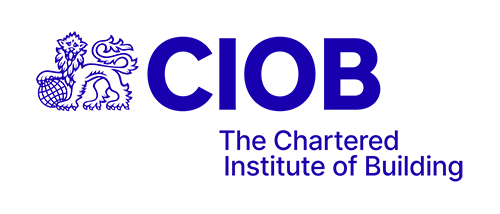About your MSc construction management
Our MSc construction management programme is designed to give you the expert knowledge, skills, and confidence to lead teams in a variety of construction sector roles. This postgraduate degree is ideal if you're a civil engineer looking for a management qualification, you're new to a construction management role, or you are looking to advance to a leadership position. This degree in construction and civil engineering management will give you a complete understanding of the role of a construction manager throughout the whole construction process. By studying our construction management course online, you will have the flexibility to advance your career around your other commitments.
Course highlights
- Gain a complete understanding of the role of a construction manager
- Develop the expert skills and confidence to lead and manage teams in the built environment sector
- Accredited by The Chartered Institute of Building (CIOB)
How you'll study
This course is studied 100% onlineCourse length
Study between 2 years 4 months and 2 years 9 months depending on start date
Start in Jan, May, or Sept
Application deadline
Our next deadline is30th April 2024
Fees: £7,701
Professional accreditation
Course overview
Construction and civil engineering managers are responsible for the practical management and planning of every stage of a construction project. They ensure building projects are completed safely, within budget, and on time. Our CIOB accredited Construction and Civil Engineering Management Master’s degree will develop your understanding of the role of a construction manager, giving you the confidence and encouragement to develop your own management style.
This course has been designed to help you reach your career aspirations; it is perfect for those looking for a formal management qualification to support your career progression or those seeking to advance into leadership roles in the construction and civil engineering sector. This MSc in civil engineering management will provide you with the expert theory and knowledge needed to gain a complete understanding of the role of a construction manager throughout the entire construction process.
You'll develop your knowledge of, and approach to, management by learning the key principles and practices of management, as well as about people management, HR policy and practices, and how to motivate and develop your colleagues. You'll also learn how to manage procurement and supply chains, as well as sustainability and environmental considerations.
Our MSc construction management is broken down into eight key modules and a major project, and the modules cover key topics such as management theory; project planning and control; management practice; and procurement and supply chain management. This postgraduate degree will also give you a greater understanding of the economic, political, and legal framework; sustainability and environmental management; and structural adaptation and reuse of buildings. There is also a research design and methods module which will help to prepare and support you while planning and conducting your major project. This major project will give you the opportunity to carry out your own research or work-based project in an area that most interests you and aligns with your future career plans, in order to demonstrate your learning from the course.
Successful completion of this course will enhance your employability as a manager in a wide range of roles within the built environment sector. You’ll have the expert knowledge, skills, and the confidence needed to apply your own management style to lead teams and identify and put into practice innovative solutions to construction-related problems. Once you have completed 3 years on the job experience, you’ll be eligible to apply for Chartered Status with The Chartered Institute of Building.
Modules
Due to the structure of this course, there will be instances where you will study two modules simultaneously during a trimester. You will be supported by your tutors to help manage your workload and assessment deadlines.
Please contact one of our advisers to discuss the pacing of this course and the options available to match your circumstances.
Management Theory
Build your knowledge of leadership theories and develop your own unique approach to management. You’ll learn about the key principles and practices of management, including organisational structures and leadership. You’ll also explore the principles and practices involved in management and organisational success.
Management Practice
Organisational performance is largely dependent on the performance of people, which in turn is determined by the quality and effectiveness of their management. Therefore, it is crucial that managers can effectively lead the people that are under them in the organisational hierarchy, and aid and inspire their teams to produce the best results they can. In this module, you will learn about people management, HR policy and practices, and how to manage performance, empower motivation, and development commitment.
Project Planning and Control
Develop a systematic understanding of the principles, practices and systems used to plan and control projects. You'll gain a critical insight into integrated planning and programming software and information systems and the potential of Project Management Information Systems [PMIS] to provide effective management of all aspects of a project, especially resources, time, and cost.
Research Design and Methods
Aquire an in-depth understanding of the theories and methods of research and research design. You'll develop a theoretical and practical foundation from which to embark on your master’s level Major Project/Dissertation.
Economic, Legal and Political Framework
Firms in the construction and civil engineering sector are very dependent on the external environment and this module will enable you to understand and analyse these complex relationships. You’ll develop your understanding of the economic, political, and legal influences on firms in the industry and apply your learning to current events through your own research and debates.
Sustainability and Environmental Management
Here, you will look at wider developments in environmental protection, how they influence construction, and how construction affects them. You’ll also examine the demands that greater environmental awareness places on the built environment.
Procurement and Supply Chain Management
Develop an in-depth understanding of the principles and practices of procurement across a wide range of different approaches and situations. This includes direct and integrated approaches such as supply chain management and partnering in order to ensure that you’re fully prepared for the responsibilities that are involved in construction management.
Structural Adaptation and Re-use of Buildings
Structural Adaptation and Re-use of Buildings will help you to develop a detailed understanding of the engineering aspects of building adaptation and re-use. These include, but are not limited to, a consideration of the benefits that the approach can deliver in terms of reductions in energy and resource consumption. You’ll also consider a range of structural implications including the assessment of existing buildings; changes in loading requirements and related structural calculations; durability, degradation, and testing of construction materials and structural adaptations; strengthening methods; and temporary works.
Major Project/Dissertation
You'll choose an independent research topic from an area of expertise within our department (subject to availability of suitable supervision) and will conduct a significant research project in that area which may involve a literature review, data collection, analysis, and a write-up. The final piece of work should be equivalent to a maximum of 12,000 words.
Modules are subject to change and availability.
Assessment
We’ll assess you through a combination of assignments, case studies, examinations, group work and presentations.
How you'll study
Our Construction and Civil Engineering MSc is studied 100% online.
You’ll study through Canvas, our world-class online Learning Management System (LMS), which can be accessed from your phone, PC, or tablet, both at home or on the move. Canvas provides instant access to study materials, forums, and support from tutors and classmates, as well as enabling easy submission of your assignments.
The course is studied over 2 years 4 months if you start in September or 2 years 9 months if you start in January or May.
On successful completion of your studies, you’ll be invited to attend a graduation ceremony on campus. If attending the ceremony in person is not possible then we’ll arrange to have your certificate sent to you.
Supported distance learning
We understand that distance learning is different to traditional campus study and if you’re new to online study you may have concerns or apprehensions about studying your masters in civil engineering online, and that’s natural.
To help put your mind at ease we have a dedicated Distance Learning Support Team to help and support you throughout your time at ARU, starting with your first online induction and staying with you right through to graduation. In addition, you’ll also be supported by specialist construction industry tutors, well experienced in supporting distance learning students. They'll be on hand to guide you through both the taught modules, and the different assessment methods.
Once you start your masters in civil engineering, we encourage the creation of online communities and many of our learners find these connections with others invaluable, helping them to stay motivated, share concerns or make new friendships.
Contact us to talk through any questions or concerns or visit our support page for more information about the support services available.
Be part of the University of the Year
We're proud to be the Times Higher Education (THE) University of the Year 2023.
The prestigious THE awards honour ’exceptional performance during the 2021-22 academic year, and reflect ARU’s success in delivering high-impact projects during this period, despite the challenges of the Covid-19 pandemic.
The award recognises the difference we make in the region and our communities – while also acknowledging the broader impact of our world-leading research, and the contributions our students and graduates make to society.

Accreditation

CIOB Accredited
Our Construction and Civil Engineering Management MSc is accredited by The Chartered Institute of Building (CIOB). The CIOB is the worlds largest professional body for construction management and leadership. CIOB accreditation is recognised as a mark of the highest levels of competence and professionalism in the development, conservation and improvement of the built environment.
Upon successful completion of the MSc and having completed 3 years on the job experience, you’ll be eligible to apply for Chartered Status with CIOB.
Careers
To help you land your dream job, our Employability Service will work with you throughout your time at ARU and after you graduate.
We offer:
- careers advice, including one-to-one online and telephone appointments with our experienced advisers
- help with your CV, job searches, applications, and interview preparation
- an online portal packed with useful careers resources
- our Employability Programme, which helps you hone the skills employers say they want in graduates.
Entry requirements
You’ll need a minimum of a 2:2 honours degree. Applicants with a degree equivalent qualification or relevant work experience are also encouraged to apply.
If English is not your first language you will be expected to demonstrate a certificated level of proficiency of at least IELTS 6.5 (Academic level - with no individual score being lower than 5.5) or equivalent English Language qualification, as recognised by Anglia Ruskin University.
As a distance learner, you'll also need a suitable computer with internet connection, together with sufficient IT competence to make effective use our online learning management system (LMS) with high-speed internet and email.
Important additional notes
Our published entry requirements are a guide only and our decision will be based on your overall suitability for the course as well as whether you meet the minimum entry requirements.
Fees & funding
Fees
The full tuition fee for this masters in civil engineering is £7,701.
The tuition fees you pay each year for the full Construction and Civil Engineering Management MSc will be £2,567. The course is studied over 2 years 4 months if you start in September or 2 years 9 months if you start in January or May.
Accredited Prior Learning may reduce the tuition fees. This will be confirmed once your application has been submitted.
Funding
We offer payment by instalments, so you can spread the cost of studying with us.
For military students: You can use your ELCs towards this course. ARU is a recognised ELCAS provider (number 1007). Please contact your Learning Centre for details of ELC, eligibility and how to apply.
For more information on how you fund your studies please see our funding page.
What our students say
The support I received was thorough and greatly appreciated, from top tips, online presentations and one-to-one sessions through skills study plus.
My tutors and the support staff have been fantastic. They are friendly, professional and have a great way of explaining how to do things so that I understand it.
Campus learning was not an option for me, but distance learning allowed me to study from the comfort of my own home.
The flexibility of distance learning, the continued support from ARU and a supportive employer will help me achieve my ultimate goal of obtaining a Masters by the time I reach 50.












